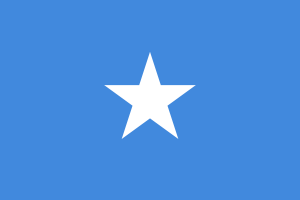Language/Somali/Culture/Holidays-and-Celebrations
Introduction
Welcome to the section on Somali holidays and celebrations! In this lesson, you will learn about the major holidays observed by Somalis and the customs and traditions associated with them. Holidays are an important part of Somali culture, providing an opportunity for families and communities to come together, celebrate, and connect. By learning about the holidays and traditions in Somalia, you will gain a deeper appreciation for Somali culture and gain valuable insights into the daily life and cultural experiences of Somali people.
Overview
In this lesson, we will cover the following topics:
- The major holidays and celebrations in Somalia
- The cultural and historical significance of each holiday
- Common traditions and customs associated with each holiday
Learning Objectives
By the end of this lesson, you will be able to:
- Identify and describe the major holidays and celebrations in Somalia
- Explain the cultural and historical significance of each holiday
- Understand and describe the common customs and traditions associated with each holiday
Somali Holidays and Celebrations
Somali holidays and celebrations are deeply rooted in Islamic tradition and are observed with great enthusiasm and joy by the Somali people. The most important Muslim holidays, such as Eid al-Fitr and Eid al-Adha, are observed with both religious and cultural significance. Other holidays are celebrated as cultural events unique to the Somali people, and are of great importance to their cultural heritage. Let's take a closer look at some of the major Somali holidays and celebrations.
Ramadan (Bulus)
Ramadan is the ninth month of the Islamic calendar, and is observed by Muslims worldwide as a month of fasting, prayer, and spiritual reflection. During the month of Ramadan, Muslims abstain from food and drink from dawn until sunset, and engage in increased acts of worship and charity. In Somalia, Ramadan is a time of great spiritual significance, with Muslims attending daily prayers at the mosque, reciting the Qur'an, and breaking their fast in the evening with family and friends. The end of Ramadan is marked by Eid al-Fitr, a three-day festival of celebration and feasting.
| Somali | Pronunciation | English |
|---|---|---|
| Ramadan | Bulus | Ramadan |
| Eid al-Fitr | Aayadaha Fiitr | Festival of Breaking the Fast |
Eid al-Fitr (Aayadaha Fiitr)
Eid al-Fitr, also known as the Festival of Breaking the Fast, marks the end of Ramadan and is celebrated with great joy and feasting. Muslims gather at the mosque for Eid prayers, and then spend the day visiting family and friends, exchanging gifts and sweets, and sharing special meals. Children often receive small gifts or money from adults, and many families decorate their homes with lights and decorations.
Eid al-Adha (Aayadaha Adha)
Eid al-Adha, the Festival of Sacrifice, is celebrated on the 10th day of the Islamic month of Dhul Hijjah. Muslims commemorate the willingness of Ibrahim (Abraham) to sacrifice his son as an act of obedience to God, and is marked by the sacrifice of an animal, usually a sheep or goat. The meat is then distributed to family, friends, and the poor, and is cooked and shared in a special meal. Eid al-Adha is a time of joy and celebration, with Muslims gathering at the mosque for special prayers and then spending time with family and friends.
| Somali | Pronunciation | English |
|---|---|---|
| Eid al-Adha | Aayadaha Adha | Festival of Sacrifice |
| Dhul Hijjah | Zulkajjada | 12th month of the Islamic calendar |
Independence Day (Maalintii Soomaaliland)
Independence Day is celebrated on May 18th in the northern region of Somalia known as Somaliland. The day marks the anniversary of Somaliland's declaration of independence on May 18th, 1991, following the collapse of the Somali government. It is celebrated with parades, speeches, and cultural events, and is a time for Somalilanders to celebrate their independence and national identity.
Somali National Day (Maalintii Dalka Soomaaliyeed)
Somali National Day is celebrated on July 1st to commemorate the unification of Italian Somaliland and British Somaliland to form the Somali Republic in 1960. The day is marked by parades, speeches, and cultural events, and is a time for Somalis to celebrate their national unity and independence.
| Somali | Pronunciation | English |
|---|---|---|
| Independence Day | Maalintii Soomaaliland | Somaliland Independence Day |
| Somali National Day | Maalintii Dalka Soomaaliyeed | Somali National Day |
Customs and Traditions
Somali holidays and celebrations are marked by a variety of customs and traditions that reflect the cultural heritage and religious traditions of the Somali people. Let's take a look at some of the most common customs and traditions associated with Somali holidays.
- Family Gatherings: Holidays are a time for families to come together, often traveling long distances to be with one another. It is common for Somali families to gather for special meals, prayers, and cultural events.
- Gift Giving: Giving gifts to family and friends is an important part of Somali holiday tradition, particularly during Eid al-Fitr and Eid al-Adha.
- Traditional Clothing: Somalis often wear traditional clothing during holidays and celebrations, with women wearing brightly colored dresses and headscarves, and men wearing long white or cream-colored robes.
- Feasting: Somali holidays are marked by delicious feasts of traditional foods, such as bariis iskukaris (Somali-style rice) and goat or beef stew.
Conclusion
In this lesson, we have explored some of the major Somali holidays and celebrations, and the customs and traditions associated with them. Somali holidays are an important part of Somali culture, providing an opportunity for families and communities to come together and celebrate their religious and cultural heritage. By understanding the significance of these holidays and the customs and traditions associated with them, we gain a deeper appreciation for Somali culture and the experiences of Somali people.

